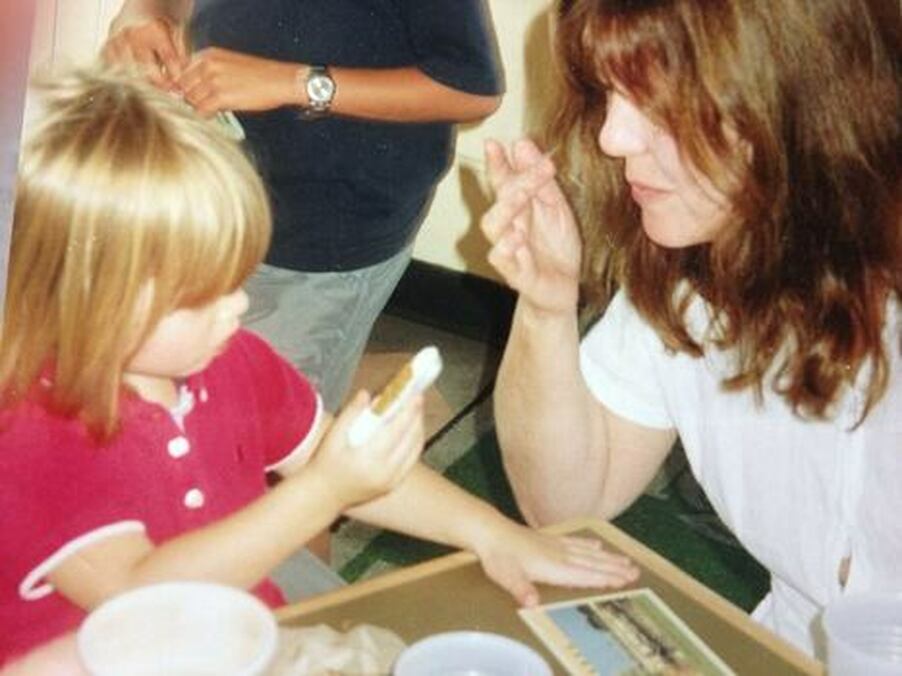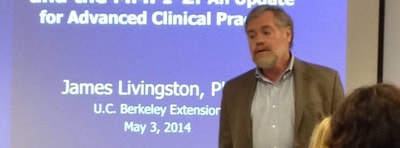collaborative (in which we both gain!) psychological assessment
"a rapid basic understanding of our client's personality strengths and difficulties,
and full clarification "OF OUR CLIENT'S QUESTIONS"
(and, to former students . . . DO answer the questions asked.! . .)"
when working "with" very young children, "would you like to learn something new about yourself that maybe no one knows?"
Include freeing coloring/drawing for relaxing and relating, not evaluative purposes, if you like.
All ages and stages have attendant general developmental issues that relate to tests chosen, test administration/modifications, etc.
"a rapid basic understanding of our client's personality strengths and difficulties,
and full clarification "OF OUR CLIENT'S QUESTIONS"
(and, to former students . . . DO answer the questions asked.! . .)"
when working "with" very young children, "would you like to learn something new about yourself that maybe no one knows?"
Include freeing coloring/drawing for relaxing and relating, not evaluative purposes, if you like.
All ages and stages have attendant general developmental issues that relate to tests chosen, test administration/modifications, etc.

Consider also the many situational factors that highly influence people of every age, and either delay testing, or adapt, conduct in parts, and always write those adjustments into the Report (very hard to do -such as "child appears and reports is sleep deprived and hungry" each time I go to pick her up from the classroom" in school Reports, unfortunately). OVER AND OVER young children's school academic reports omit reference to chaotic or violent family or classroom dynamics that may well be significant to failing mood, coping, and academics . . .
with each potential client. . . "tell me (exactly) what you are looking for" "tell me more? "what would you really like to know, or better understand?'
examples of tests and domains addressed In personalized assessment batteries:
Intelligence, Learning Style, Learning Disorders, ADHD, etc., diagnostic assessments, psychopathology, autism spectrum, Head Injury, Impulsivity, IEP, 504, Neuro Screens, Disability, NEXUS, Asylum eval, VAWA, Vision/Low Vision, specialty evaluations for Law Enforcement, the Military, Nursing, Occupational Therapy, Physical Therapy, etc., testing for Reading Ability
as professors of psychology, and longtime assessment professors, we are perhaps best known for using assessment clarification "at the margins (the difficult, hard to diagnose areas of psychopathology" - the challenging clinical cases for which psychological assessment often holds the diagnostic, prognostic, and clinical keys.
offering enthusiastic, competent, accurate, precision psychological assessment services -
(personalized) lifespan assessment-informed treatment by highly experienced psychological assessment professors . . .
second opinion reviews of assessment test selection appropriateness, procedures, accuracy, and interpretation
consultation regarding ethical assessment issues; current complex issues pertaining to children, family court; disability collaboration and referral: specialty areas, "exceptionalities"
our expertise includes using psychological assessment to inform treatment choices.
Put another way, we use testing not to label or discriminate, but to inform the accurate identification, description, and treatment as well as placement of those who are struggling, accurately address unique issues of gifted children and adolescents, provide research-based interventions for high conflict and violence exposed, or injured, ill, traumatized toddlers, children, youth, and adults -- all who are experiencing the results of being conflict-exposed, symbolically exposed to toxic interpersonal interactions and engagement.
We are increasingly seeing preschoolers for assessment of their potential for being on the autism spectrum. We speak first with parents for their interpretation of their child's autistic-like presentation, and the meaning that has had in the life of the family. We also confer with the family physician. Then we use a standard but flexible combination of engaged, naturalistic (real-life) play and play-task observation with children and parents, tactile and kinesthetic age-appropriate tasks, validated, customarily used rating scales, thorough prenatal family psychosocial, educational, and trauma histories and medical histories, parent interviews and observation of parent-child interactions, school reports if they exist. In many cases we confer with San Andreas Region Center, and may well request a comprehensive evaluation from their psychologists as well.
We are continually refining the use of performance testing and projective testing, in particular, for clarifying the effects of direct, lived, painful and traumatic experience in vulnerable individuals, particularly the youngest children.
the rorschach test: clinical and forensic use of performance testing;
R-PAS system; use of performance testing with traumatized children and youth; clinical research - results with various populations, (nature and effects of severe trauma on postconflict children
legal, ethical, and cultural linguistic issues: interpreters: working with immigrants, torture survivors.
Dr. Marilee concentrates research and clinical activities on parenting issues, and relationship-based parenting. She has significant experience with families unique by reason of being reconstituted families, those where children may have, acute and chronic pediatric illness, or where there is parental mental illness -- and their effects on the family members. She has considerable expertise and experience with children and youth at high psychosocial or psychiatric risk, often those considered "invisible, expendable children" in their original family, or in the"new"combined, family, and has a longstanding focus on pediatric suicidality in the youngest children: its derivation, contributing and maintaining factors, and contextual issues that can be manipulated to bring relief.
Put another way, we use testing not to label or discriminate, but to inform the accurate identification, description, and treatment as well as placement of those who are struggling, accurately address unique issues of gifted children and adolescents, provide research-based interventions for high conflict and violence exposed, or injured, ill, traumatized toddlers, children, youth, and adults -- all who are experiencing the results of being conflict-exposed, symbolically exposed to toxic interpersonal interactions and engagement.
We are increasingly seeing preschoolers for assessment of their potential for being on the autism spectrum. We speak first with parents for their interpretation of their child's autistic-like presentation, and the meaning that has had in the life of the family. We also confer with the family physician. Then we use a standard but flexible combination of engaged, naturalistic (real-life) play and play-task observation with children and parents, tactile and kinesthetic age-appropriate tasks, validated, customarily used rating scales, thorough prenatal family psychosocial, educational, and trauma histories and medical histories, parent interviews and observation of parent-child interactions, school reports if they exist. In many cases we confer with San Andreas Region Center, and may well request a comprehensive evaluation from their psychologists as well.
We are continually refining the use of performance testing and projective testing, in particular, for clarifying the effects of direct, lived, painful and traumatic experience in vulnerable individuals, particularly the youngest children.
the rorschach test: clinical and forensic use of performance testing;
R-PAS system; use of performance testing with traumatized children and youth; clinical research - results with various populations, (nature and effects of severe trauma on postconflict children
legal, ethical, and cultural linguistic issues: interpreters: working with immigrants, torture survivors.
Dr. Marilee concentrates research and clinical activities on parenting issues, and relationship-based parenting. She has significant experience with families unique by reason of being reconstituted families, those where children may have, acute and chronic pediatric illness, or where there is parental mental illness -- and their effects on the family members. She has considerable expertise and experience with children and youth at high psychosocial or psychiatric risk, often those considered "invisible, expendable children" in their original family, or in the"new"combined, family, and has a longstanding focus on pediatric suicidality in the youngest children: its derivation, contributing and maintaining factors, and contextual issues that can be manipulated to bring relief.
You may resonate with some of our experiences and specialities which some find helpful:
- Dr. Marilee is a former Special Ed teacher, and also spent many years as a Psychologist directing a Clinical program proving assessment and treatment to Special Ed students in a Therapeutic School using doctoral psychology interns - students there included those with severe psychological/behavioral issues and a developing therapeutic program for children and youth on the Spectrum - children with ASD.
- Child/youth direct victims of assault, threat, or exposure to violence, suicide of a parent or friend, car-jacking, rape, etc., -- Dr. Marilee does not give up. She is persistent and effective working with children considered "hopeless" therapeutically, and often assists in diagnostic re-conceptualizing, addressing treatment issues by consulting on complex, complicated child/youth cases.
- Children and families dealing with acute or chronic or life limiting illness, or anticipatory grief.
- Transitions: and dealing with difficult news in the family - such as an upcoming move away, a separation or divorce, etc.
- Bereaved children and families. Dr. Ruebsamen is certified and experienced in pastoral care and hospital chaplaincy.
- "Exit and/or entrance events" especially as they relate to despondency in children and adolescents. Significant changes or losses (these actually load as potential factors for child suicide which are often overlooked or minimized by adults - - loss of a child's best friend, loss of a grandparent, loss of a pet - These are major life events for children and how they are processed and honored/memorialized prepares a child/sets the stage for coping with other such losses through out the lifetime. We can support you through this process.
- You may be a parent worried about your child's readiness for preschool, kindergarten, Jr. High, college, his or her overall wellbeing, academic or social/interpersonal functioning. Unfortunately, preschools and schools often have a difficult time with children who may not "fit in" as easily as others, who may not be quite as mature as their peers at four years old, whose temperaments may be challenging, or who are culturally/linguistically different from the majority. At three and four years old there is maximum developmental scatter (difference) in children's developmental abilities. We can help you by observing your child in the school context, carefully examining your child across various domains and listening carefully to you and others who know him/her well across domains and contexts - them sharing what we have found developmentally as it impacts placement.
- Parents come with concerns about their child's apparent maladjustment to various school, after-school, and social settings - or worried about diagnoses that their MDs or preschool staff have suggested. We can sort that out with you - and also assist you to get the educational support your child deserves from 0 - 5, etc. which parents are often unaware of.
- Quite regularly, adults diagnose themselves and eventually come with high levels of anxiety to confirm or dis-confirm a diagnosis.
- Child anxiety or attentional disorders: parents may wonder whether your child is demonstrating true AD(H)D or some variation of of attentional disorder, and if so, what exact type, and have questions about whether or not to agree to medication or some other recommended treatment for your child.
- Your child's IEP may be unclear or contentious: You are involved in a worrisome, confusing or contentious IEP process and would appreciate a consultation and independent review.
- Violence, victimization; crisis: You or someone close to you may be experiencing the aftermath of violence or your children are exposed to (interpersonal, or community, etc.) violence, direct victimization, an ongoing crisis and need immediate, competent, confidential, support. Children, women or men who are DIRECT VICTIMS of assault or any kind of victimization, assault or violence require support, assistance, and help with understanding both psychological issues, assessment, treatment, referrals, and competent, clear assistance about how to avoid re-victimization.
- bullying bullying bullying - continues to be a life-threatening theme - victims, bullies, and affected families and parties - see the most recent research!
- "online addiction" in its various manifestations - called by different names, viewed in extremely different ways by different educators and therapists, it is a consistent concern of parents regarding kids of every age.
- young sexual abuse and assault victims often come to attention, including very young children, college students, male and female.
- we often see young mothers or fathers in recovery who need immediate support with parenting - sometimes they are in circumstances where their children are being removed from their care. We are experienced in providing thorough evaluation and treatment.
- Psycho-education: Or, someone close to you may be in crisis and you want education around that issue to be certain how to be responsive and supportive (as in the case of a young person away at college).
- Identity Issues: You may have been hoping for confidential and informed support about identity issues, or be the family member of someone who is working through such issues.
- Child Gender Creativity: Gay or transgender children or youth? Children in transition? Parents of children who are coming out? Dr. Ruebsamen is experienced in LGBTQAI issues and provides support to youngest children and questioning families through older adults.
- Postpartum depression: Mothers are often referred by physicians and friends for treatment of postpartum depression.
- Parenting as (Spiritual) Practice -- Positive, Mindful, Compassionate parenting: You may be interested in support with positive, compassionate, more positive, reflective parenting.
- Grandparents bring in grandchildren they are parenting: Grandparents have come to our attention for support whom they find themselves parenting --- the children of their own children -- when their grown children are unable to to parent subsequent to alcohol/drug abuse, incarceration, or parental neglect. We are skilled and experienced in providing assessment and ongoing support for both these grandparents-turned-parents-again, and the children newly placed in the home, as well as the family as a whole - a new unit in these situations. We are especially experienced at interpreting the responses and reactions of these vulnerable children to educational personnel and classroom teachers.
- Enduring mental health issues: you or your child, adult child or partner may be struggling with a significant anxiety, mood, attentional or behavioral disorder and you are looking for confirmatory psychological assessment, diagnosis; treatment; Second Opinion; Consultation.
- Severe mental illness/ seeking therapy: You or a relative may have a severe mental illness such as schizophrenia, another psychotic disorder, a severe mood disorder -- and you have lost your longtime treating psychotherapist and would like to consider a new provider.
- Relationships: You may be shattered at the breakup of a relationship, and feel the need for sorting out and clarifying what remains of yourself remains intact, and believe you would make good use of connection, emotional support. and would like to focus on healing and recovery.
- Work on longstanding issue: An issue or concern may have been gnawing at you for a long time, perhaps years, and for some reason, you feel ready to explore and work on it. Timing is often a mysterious but critical component of seeking psychotherapy, and motivation is a great factor for working well in treatment.
- Confirmative Diagnoses: Cognitive confusion or behavioral changes: you have increasing concerns about you or your partner's being forgetful and confused or and are looking for diagnostic clarity through interview, testing, developing adaptive planning..
- ADHD/PTSD differential: child attentional, learning, vs. PTSD issues, coping, bullying, parental conflict, divorce, reconstituted family, transition to college: You may be unclear as to the the interaction of attentional vs. PTSD symptoms vs. a mood disorder such as Bipolar II - all complicating your child's ability to cope in situations involving harassment, bullying, parental conflict, divorce, reconstituted families, transitioning to college.
- Loss: child withdrawn, recent losses: Your child may be withdrawn, experiencing recent losses, relationships that have ended, deaths of significant pets, friends, relatives. . .
- Anxiety: young child anxieties/acting out: You may have a fairly young child who is anxious, depressed, acting out, having difficulties at preschool school and at home.
- Suicide Potential: child/pediatric suicidality: You may have a child (of any age) who is clearly expressing suicidal thoughts or behaviors.
- Chronic illness/coping: You may be experiencing complex chronic health issues and desire support with coping.
- Situational stress/business: You may be a Silicon Valley Executive who would appreciate confidential support for a specific, situational, stressful situation.
- Psychological testing: You may be requesting a specific type of psychological assessment for your child: psychoeducational, giftedness, adhd, school readiness, etc.
- Restless: You may feel restless and desire change, but cannot identify the source of the discomfort, and would like help clarifying your thoughts; feelings.
- New therapy experience: You find yourself discouraged and disillusioned with past experiences in therapy and looking for a new therapeutic experience and more fruitful, or more collaborative.experience.
- Second opinion consult: You may feel you have never been correctly diagnosed, believe you have been mis-diagnosed, over-diagnosed, etc., and would appreciate a second opinion consultation.
- Lonely and in pain, seeking therapy: You may be motivated by sheer loneliness or what is referred to as "the trauma of everyday life", to seek the empathic listening therapy can provide.
- End-of-life issues: You may want assistance with later life and end-of-life issues, support with anticipatory grief, approaches to palliative care, bereavement, grief and mourning.
- Refugee post-settlement issues: You may be need help with refugee resettlement issues or need a VAWA or an asylum evaluation.
- CAREGIVING: Emotional difficulties of caregivers: Caregivers of others, including Nannies, frequently request support with feelings of isolation. depression, inadequacy, loneliness.
You, who are on the road Must have a code
That you can live by.
And so -- Become Yourself
Because the past Is just a good-bye
Teach your children well
Your father's hell did slowly go by
And feed them on your Dreams
The one they pick The one you'll know by
Don't you ever ask them why
If they told you you would cry
So just look at them and sigh
And know they love you.
And you of tender years Can't know the fears
That your elders grew by
And so please help them with your youth
They seek the truth before they can die
Teach your parents well.
The children's hell will slowly go by
And feed them on your dreams
The one they pick The one you'll know by
Don't you ever ask them why -
If they told you you would cry
So just look at them and sigh And know they love you.
Teach Your Children, Crosby, Stills, and Nash. Released, 19
That you can live by.
And so -- Become Yourself
Because the past Is just a good-bye
Teach your children well
Your father's hell did slowly go by
And feed them on your Dreams
The one they pick The one you'll know by
Don't you ever ask them why
If they told you you would cry
So just look at them and sigh
And know they love you.
And you of tender years Can't know the fears
That your elders grew by
And so please help them with your youth
They seek the truth before they can die
Teach your parents well.
The children's hell will slowly go by
And feed them on your dreams
The one they pick The one you'll know by
Don't you ever ask them why -
If they told you you would cry
So just look at them and sigh And know they love you.
Teach Your Children, Crosby, Stills, and Nash. Released, 19


